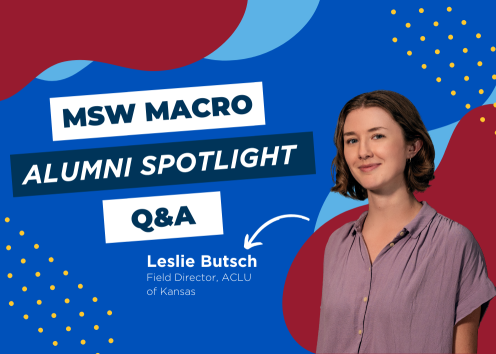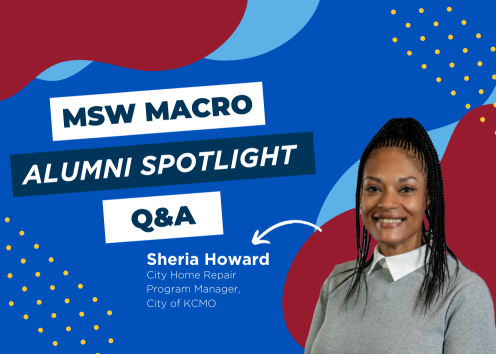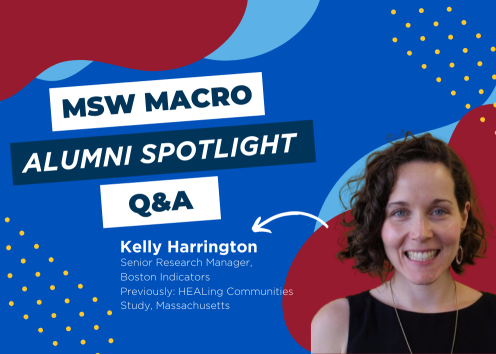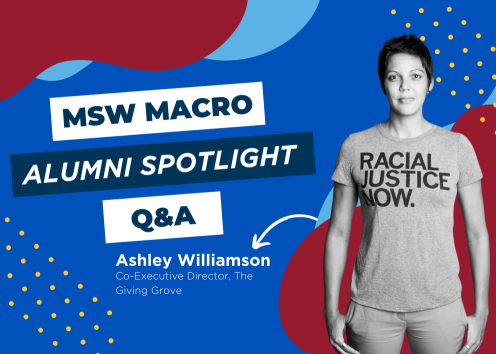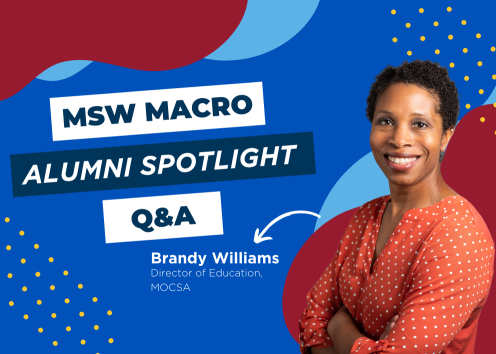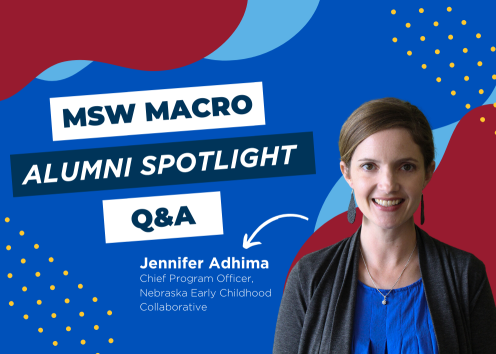Alumni Stories
Our alumni make significant contributions toward improving the lives of vulnerable people. Often, that work happens behind the scenes.
Catch up on alumni stories to find out how Jayhawk Social Workers are changing lives.
Have an update you'd like to share with fellow KU Social Welfare alumni? Report your alumni news and update your contact information on our Keep in Touch form.
Alumni Stories: Integrated Health
Nearly 250 graduates of the Integrated Health Scholars program are now providing integrated health care to under-served communities in Kansas and western Missouri. Hear from recent graduates of the program.
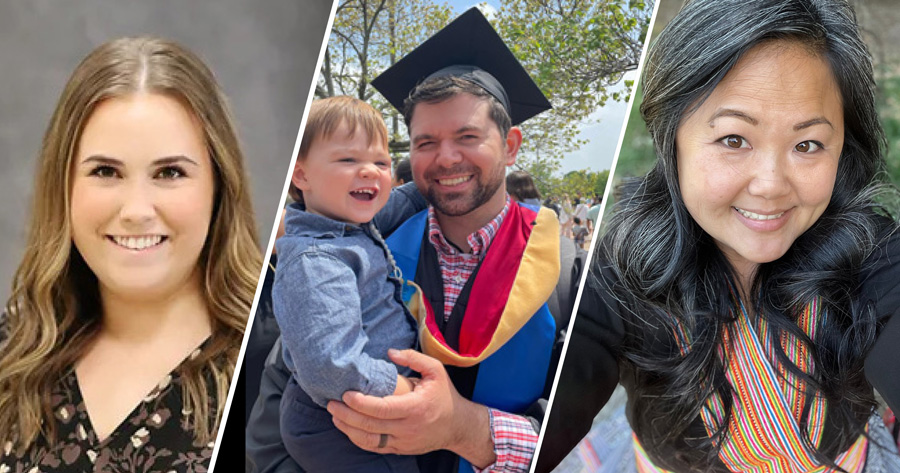
More Alumni Spotlights

Graduate turns a late career shift into a compelling new path
Chris Beal, MSW 2023, had a 35-year career working in government and policy. A personal journey inspired Beal to pursue an MSW at 58 years old.
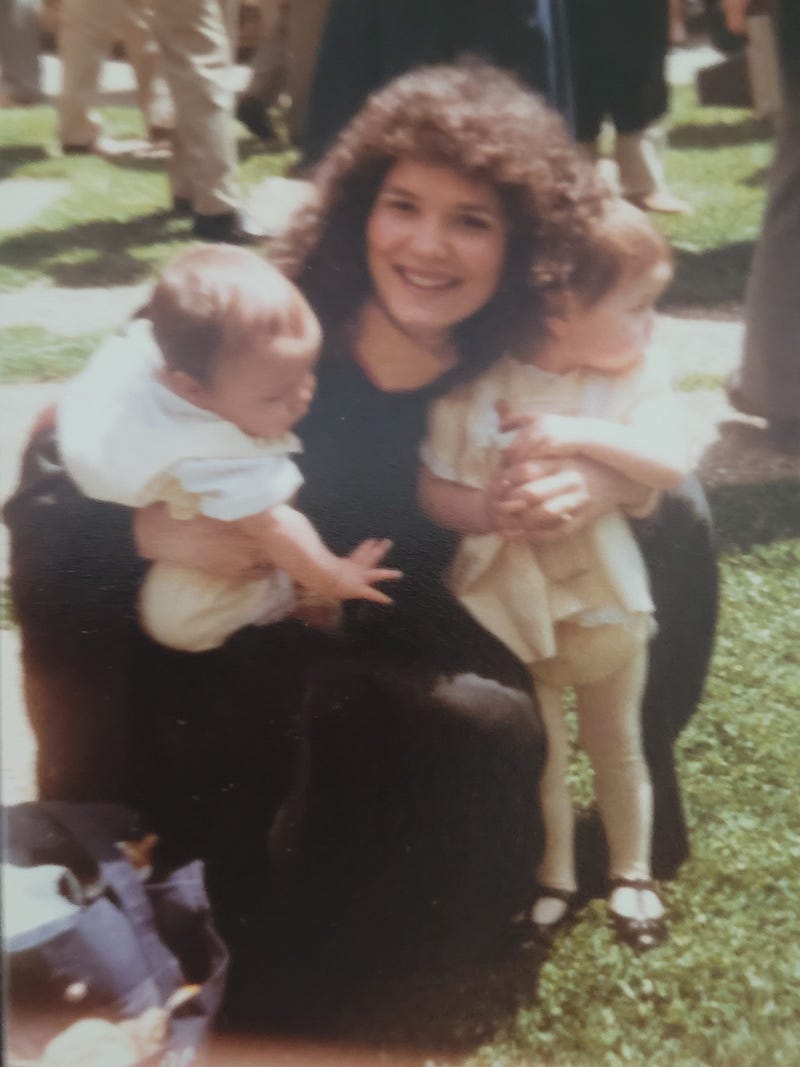
Alumna focuses social work career on giving voice to the voiceless
Cynthia Schendel, MSW 1983, spent her career as a clinical social worker, opening the doors of her practice to young people, families and adults. She established the Cynthia A. Schendel Scholarship in Clinical Social Work in 2020.
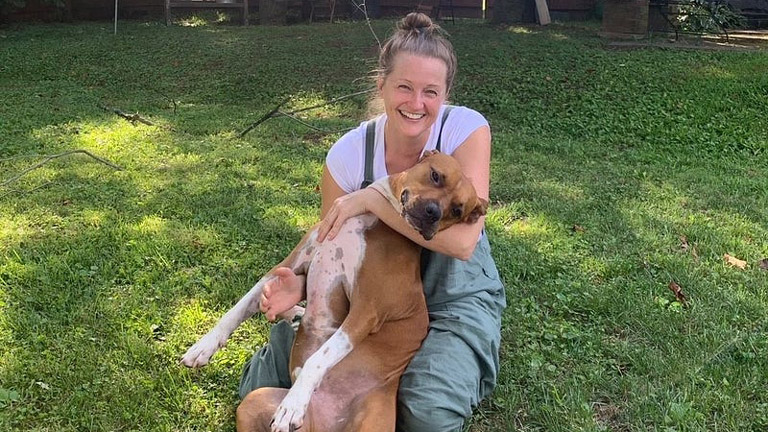
BSW alum starts nonprofit to support youth
Mel McDaniel combined her BSW education and work as an interior designer to found Marvin's Home, a nonprofit organization that furnishes homes for youths who have aged out of the foster care system.
